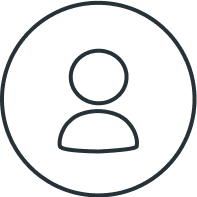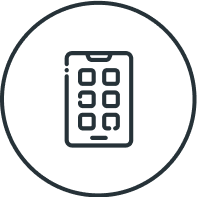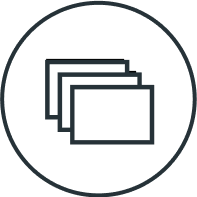4 perfis no Instagram sobre mulheres na ciência para seguir já
Conheça o trabalho de pesquisadoras do Brasil e do mundo no seu próprio feed.
Quando você ouve a palavra “cientista”, o que vem à sua mente? Arriscamos dizer que é um homem, provavelmente branco, com jaleco, óculos e algum equipamento de laboratório.
Dá para entender por quê. Um estudo divulgado em agosto de 2018 aponta que apenas 14% dos membros da Academia Brasileira de Ciências são mulheres. No resto do mundo, a realidade não é tão diferente: menos de 30% dos pesquisadores de STEM (ciência, tecnologia, engenharia e matemática, na sigla em inglês) ao redor do globo são do sexo feminino, segundo a Unesco.
Bom, apesar de ainda serem minoria, as mulheres cientistas precisam ser reconhecidas. Por isso, selecionamos alguns perfis no Instagram que divulgam o trabalho de estudiosas brasileiras e gringas.
1. @nina.draws.scientists
“Ilustradora de cientistas incríveis (que por coincidência são mulheres)”, essa é a bio da artista Nina. Na página, ela posta ilustrações digitais de astronautas, engenheiras, cientistas da computação e estudiosas e outras áreas de vários países. É um desenho mais lindo que o outro!
“Meu trabalho celebra tanto cientistas do presente quanto do passado e suas conquistas. Quero destacar a diversidade de pessoas e carreiras na ciência”, diz Nina em seu site. “Uma coisa que aprendi é que não existem duas cientistas iguais, porém elas estão todas unidas pela curiosidade implacável pelo mundo”, relata.
2. @women.doing.science
Com quase 50 mil seguidores, esse IG posta a cada dia uma cientista diferente. As legendas são todas em dois idiomas: inglês e a língua materna da profissional apresentada. E elas são de várias áreas: geologia, medicina, neurociência, biologia e inclusive de ciências humanas – sociologia e antropologia, por exemplo. Bem girl power!
3. @womenthinkscience
https://www.instagram.com/p/ByEC_Q1BwUz/
Esse é made in Brazil. O perfil divulga principalmente o trabalho de mulheres cientistas brasileiras. As postagens são todas em português e em inglês, e a ideia é mostrar o que essas pesquisadoras estão investigando em laboratórios de todo o país. Vale o follow.
https://www.instagram.com/p/BxkEVFgFNQj/
4. @thestemsquad
Esse IG reúne estudantes – a maioria mulheres – das áreas de ciência, tecnologia, engenharia e matemática (que, em inglês, formam a sigla STEM). A ideia é ser uma rede de apoio e divulgar o trabalho de pesquisadores em diversos níveis da carreira.
Muitas das minas estão no processo de se tornar PhDs e, no Instagram, compartilham suas rotinas e seus achados científicos – a cada semana, uma delas “domina” a página e mostra seu dia a dia. Vale a pena acompanhar.
@revistasuper
Com licença, tem espaço para uma autopromoção?
Embora o Insta da SUPER não seja só sobre mulheres na ciência, toda semana temos um post sobre uma mulher cientista. Contamos a história e as descobertas de pesquisadoras importantes da história – e que, não raro, pouca gente conhece. Segue a gente (e a hashtag #MulherCientista) por lá!


 Estudo sugere que pombos percebem o campo magnético da Terra pelos ouvidos
Estudo sugere que pombos percebem o campo magnético da Terra pelos ouvidos Vídeo de lobo selvagem roubando armadilha pode ser primeiro registro de uso de ferramentas na espécie
Vídeo de lobo selvagem roubando armadilha pode ser primeiro registro de uso de ferramentas na espécie Seu nome está no ranking? Saiba como explorar a nova plataforma Nomes do Brasil
Seu nome está no ranking? Saiba como explorar a nova plataforma Nomes do Brasil Caetano Galindo quer te guiar pela origem do português e das palavras
Caetano Galindo quer te guiar pela origem do português e das palavras Últimas ararinhas-azuis da natureza são diagnosticadas com vírus letal – comprometendo o futuro da espécie
Últimas ararinhas-azuis da natureza são diagnosticadas com vírus letal – comprometendo o futuro da espécie



















